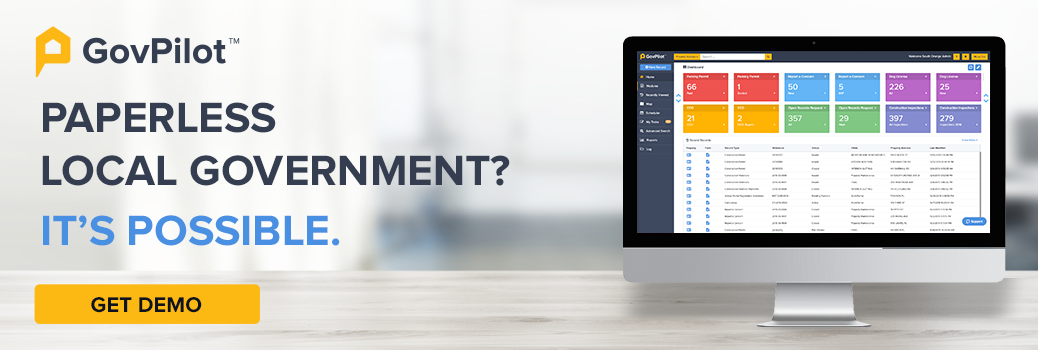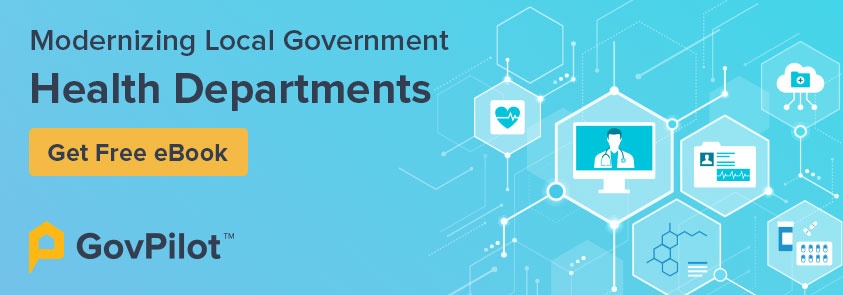The Health Insurance Portability and Accountability Act (HIPAA) is a federal law that sets standards for protecting sensitive patient health information. Any organization that handles or transmits patient health information is required to comply with HIPAA, including local public health departments, and in some cases – local governments.
HIPAA has unique implications for public health departments. The nature of public health practice often requires local health departments to share patient health information in order to protect public health. In authorized circumstances, like emergencies, outbreaks, or epidemiological research, local health departments may share patient health data to protect the public.
Additionally, local governments are considered covered entities under HIPAA if they provide health care or sponsor health coverage for employees. Whether handling patient data for research or transmitting patient information for health insurance coverage, local health departments and local governments must comply with the strict rules of HIPAA in day-to-day operations.
Compliance is crucial to maintain patient and public trust, which is key to providing effective public health services. This can be a hard balance to achieve, but with the help from technology, local health departments can maintain patient privacy and trust while ensuring public health.
Read on to learn exactly what HIPAA means for local governments, the key parts of HIPAA legislation that pertain to local governments, and local health department technology and strategies that can be used to ensure strict compliance with HIPAA standards.
What Does HIPAA Mean for Local Governments?
HIPAA impacts local governments in several ways, especially if they provide health care services or sponsor health care plans for employees. Depending on their role, local governments must follow different public health information (PHI) rules.
For example, if a local government provides ambulance services, operates a clinic or hospital, or contracts with a business associate that offers these services, they’re likely bound by HIPAA rules and regulations. And if they don’t comply, local governments can face hefty fines and damage to the public's trust.
One of the easiest ways to jumpstart HIPAA compliance is to follow best practices on public health data management and data storage:
- Avoid storing PHI on personal devices or unsecured networks by only using government devices and storing data in the government cloud.
- Train employees on HIPAA compliance and the proper handling of PHI. Keep health data secure with government cybersecurity training.
- Limit access to PHI to only those employees who need it to perform their job duties.
- Use encryption and other government cybersecurity measures to protect PHI during transmission and storage.
- Have a plan in place for responding to security incidents or breaches.
Read more about Public Health Data Management and Data Storage best practices and How Health Departments Can Use GIS.
Why is HIPAA Legislation Important for Local Public Health Departments?
HIPAA legislation is important for local public health departments for several reasons. To start, one of the most critical components public health directors need to consider to ensure public health is maintaining public trust. If trust erodes, public health is in jeopardy.
Health departments rely on the majority of the population to comply with their recommendations, which aids in preventing the spread of diseases and other environmental hazards. To do this effectively, public health departments will often analyze, survey, perform health testing, or investigate public health issues using individual patient health information.
What’s more, approximately 35% of the US population is covered by public health insurance. This means that local public health departments play a major role as healthcare providers and must protect patient privacy.
HIPAA legislation is crucial for local public health departments as it helps protect patient privacy, while also promoting the health and welfare of entire communities. HIPAA has improved public health outcomes in numerous ways:
- Allows valuable epidemiological research to be conducted using PHI
- Electronic health records (EHR) help local governments comply with HIPAA and protect patient privacy during public health emergencies
- Improved ability to diagnose diseases and reduce medical errors
- Better identification and control the spread of infectious diseases, carcinogens, and leading causes of death in the US, especially cardiovascular and respiratory diseases
Because local health departments handle large quantities of private health information, it’s important to understand what aspects of HIPAA pertain to localities, and what the penalties are for not complying, and the ways government IT infrastructure plays a role.
Key Parts of HIPAA Legislation That Matter for Local Governments
There are several key components of HIPAA that local health departments and governments must be aware of, including the Privacy Rule, Security Rule, and the Breach Notification.
-
The Privacy Rule
The Privacy Rule establishes standards for the use and disclosure of protected health information (PHI), and permits covered entities to disclose PHI to public health authorities who are legally authorized to receive such reports for the purpose of preventing or controlling disease, injury, or disability.
This is particularly relevant to local governments that are responsible for reporting disease, injury, vital data such as births and deaths, conducting public health surveillance, investigations, or interventions, and even reporting child abuse or neglect.
-
The Security Rule
The Security Rule requires covered entities to implement adequate safeguards to protect PHI, including administrative, physical, and technical safeguards.
This pertains to local governments that operate ambulance services or are the plan sponsor of health insurance. If a business associate of a HIPAA entity is involved, the local government may still need to comply with portions of HIPAA, unless contractually or legally stated otherwise.
-
The Breach Notification Rule
The Breach Notification rule requires covered entities to report any breaches of PHI to affected individuals, the Secretary of Health and Human Services, and, in some cases, the media.
Local governments that experience a breach of more than 500 residents or a jurisdiction must provide notice to both affected individuals and the media.
Many states take these requirements a step further for local governments. The recent NJ 3-Day Cyber Incident Reporting Law, for example, requires any government data breach to be reported within 72 hours.
-
Written Policy & Procedure Requirements
Local governments and health departments covered as a HIPAA entity must also have written policies and procedures regarding breach notification, train employees on these policies and procedures, and develop and apply appropriate sanctions against workforce members who do not comply with these policies and procedures.
Here are key Tips to Consider When Onboarding Employees to Government Software.
Penalties Local Governments Can Face for Not Following HIPAA Legislation
The penalties for not following HIPAA legislation are steep. Local governments can face significant fines and legal consequences if HIPAA is not followed, both intentionally and unintentionally.
HIPAA violations can result in fines of up to $50,000 per violation, with a maximum of $1.5 million per year for each type of violation. There are also criminal penalties for intentional violations, which can result in imprisonment for up to 10 years.
Non-compliance with HIPAA regulations can also damage the reputation of a local health department, which can put public health in jeopardy. Certain kinds of breaches must be reported to the media, which can lead to an erosion of trust in public health services.
Because the penalties for HIPAA non-compliance can be severe, it’s crucial for local health departments to conduct regular risk assessments, provide training to employees, and develop and implement policies to ensure HIPAA compliance. By doing so, local health departments can maintain the privacy and security of patient health information while also carrying out their public health missions.
How Government Technology Can Help Local Governments Follow HIPAA
Local health departments must have safeguards in place to protect individually identifiable health information from exposure. With the influx of electronic health records and cybersecurity breaches, local health departments must stay up-to-date with the latest health and technology and implement as many safeguards as possible.
Through government strategic planning and the right technology, counties and municipalities can avoid risks and ensure compliance. Government technology solutions, like GovPilot, play a crucial role in ensuring compliance with HIPAA, especially the Security Rule which requires safeguards to be in place to protect electronic health information.
GovPilot helps local health departments implement these safeguards by providing secure storage of government data and invaluable tools for risk assessments, workforce training, and incident management. Government software makes it easier to protect public health information, minimize risks of data breaches, and maintain compliance with complex HIPAA regulations.
Use Local Government Software to Help with HIPAA Compliance
Complying with HIPAA regulations is complex, but especially for local health departments that use private health information to protect public health. With tools like the ones offered by GovPilot, local governments can better protect public health information and minimize the risk of breaches.
To learn how GovPilot government software can help your organization implement modern HIPAA compliance and public health strategies, book a free demo.
Local Government HIPAA Requirements FAQs
Why Do Local Governments Need to Abide by HIPAA Standards?
Failure to follow the specific requirements laid out in The Health Insurance Portability and Accountability Act (HIPAA) can result in substantial fines and in some cases, criminal charges. Local government leadership needs to have specific standards in place to ensure all municipal and county staff members abide by HIPAA private health information (PHI) standards.
How Can Public Health Directors Consider HIPAA in Their Strategic Planning?
Modern government technology is critical in the modern local health department. For HIPAA compliance alone, it can help through keeping public health information data secure in the cloud and streamline digital government communications for quick and smooth reporting of any breach that does occur.
Read on:
- Florida Cybersecurity Grant Program for Local Governments
- Government Payment Processing: What to Look For
- How to Recruit Qualified Government Tech Workers
- Promoting Sustainability in Public Healthcare
- Retail Food Health Inspection Strategy
- Aquatic Facility Health Inspection Strategy
- Modern Parks & Recreation Strategy for Local Governments
- Government’s Role in Addressing Obesity in Children & Adults
Sources
https://www.hhs.gov/hipaa/for-professionals/privacy/guidance/access/index.html











